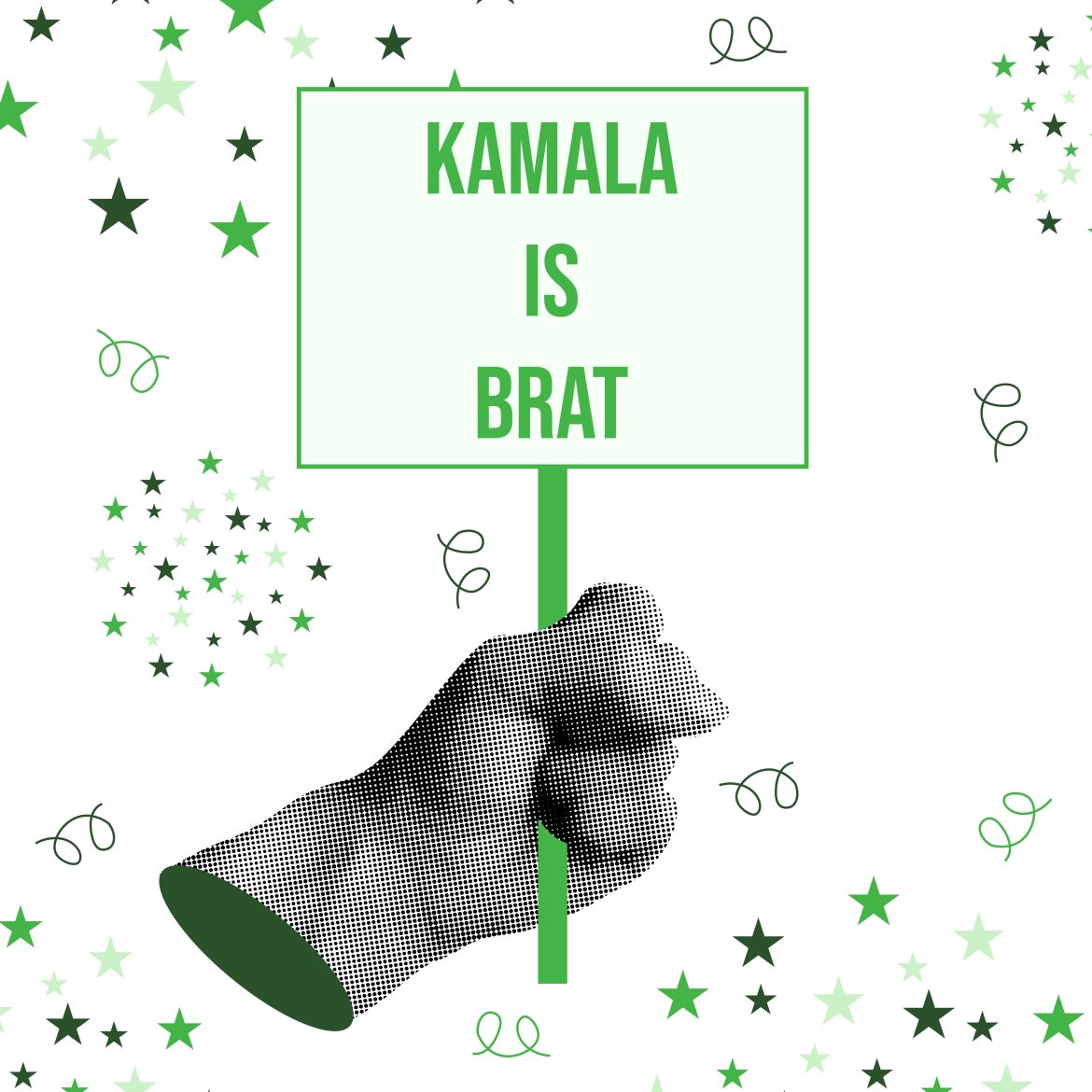Charli XCX has reluctantly embraced her tweet declaring Kamala Harris as a “brat,” which quickly became a phenomenon during this year’s presidential election. The British pop star’s light-hearted statement unexpectedly transformed into a significant political endorsement, capturing the attention of media outlets and the general public alike. Her tweet, written while enjoying a sunny day by her pool, intended to be “something positive and light-hearted” to welcome the new presidential nominee, ended up creating a cultural tidal wave.
The endorsement led to Charli’s album, Brat, becoming synonymous with the Harris campaign. Fans and the media quickly latched onto the idea, and soon, “brat” became a unique identifier for Harris, fostering a more relatable and youthful public image for the vice president. Even Harris herself has leaned into the meme, with her campaign integrating the “brat” aesthetic in various creative forms.
One Reddit user, crabofthewoods, captured the cultural blend with their comment, “Just two biracial Indian queens serving a joint slay to save democracy. NBD.” Other fans were equally enthusiastic, such as saxoccordion, who simply stated, “Thank you Charli, we <3 u.”
Not everyone was on board with Charli’s political foray, with some users expressing skepticism about the effectiveness and motivations behind celebrity endorsements. For instance, DropoutJerome_ highlighted, “Because Kamala is such a shining example of democracy, so much so that the people never had a choice in her being the democratic nominee, so cool.” This sentiment reflects a broader concern shared in another discussion on Reddit, where users expressed disappointment with various celebrities’ political stances, showcasing how such endorsements can polarize fan bases.
From a strategic perspective, Harris’ campaign’s adoption of the “brat” meme seems to be a calculated move to connect with younger voters. According to an article in NBC Washington, the meme taps into a youthful, rebellious energy that can energize and galvanize young voters who are otherwise difficult to engage. The Rolling Stone also emphasized the significance of this cultural crossover, noting how Charli’s fans have turned into de facto campaign promoters, creating free content to support Harris.
This combination of politics and pop culture was further analyzed by The Conversation, pointing out how the “brat” meme could make Harris seem more relatable to Gen Z voters. The article describes how such memes blend humor and approachability, casting Harris in a light that resonates with the digitally savvy younger generations.
However, the public’s reaction remains mixed. Some are concerned about the over-simplification and spectacle of important democratic processes. This sentiment was reflected in comments on the main thread, including a remark from slothlevel, who cynically stated, “All she’s doing is adding to the spectacle but gets to congratulate herself for saving democracy? LOL what??? We’re doomed.” Such perspectives highlight a tension between leveraging pop culture for political gain and maintaining the gravitas of the democratic process.
Ultimately, the “brat” meme symbolizes a broader trend where political campaigns increasingly intersect with pop culture to appeal to younger electorates. It remains to be seen how effective these strategies will be in influencing voter behavior, but one thing is clear: the line between celebrity endorsements and political movements continues to blur, offering a fascinating, if controversial, lens on modern-day politics.

